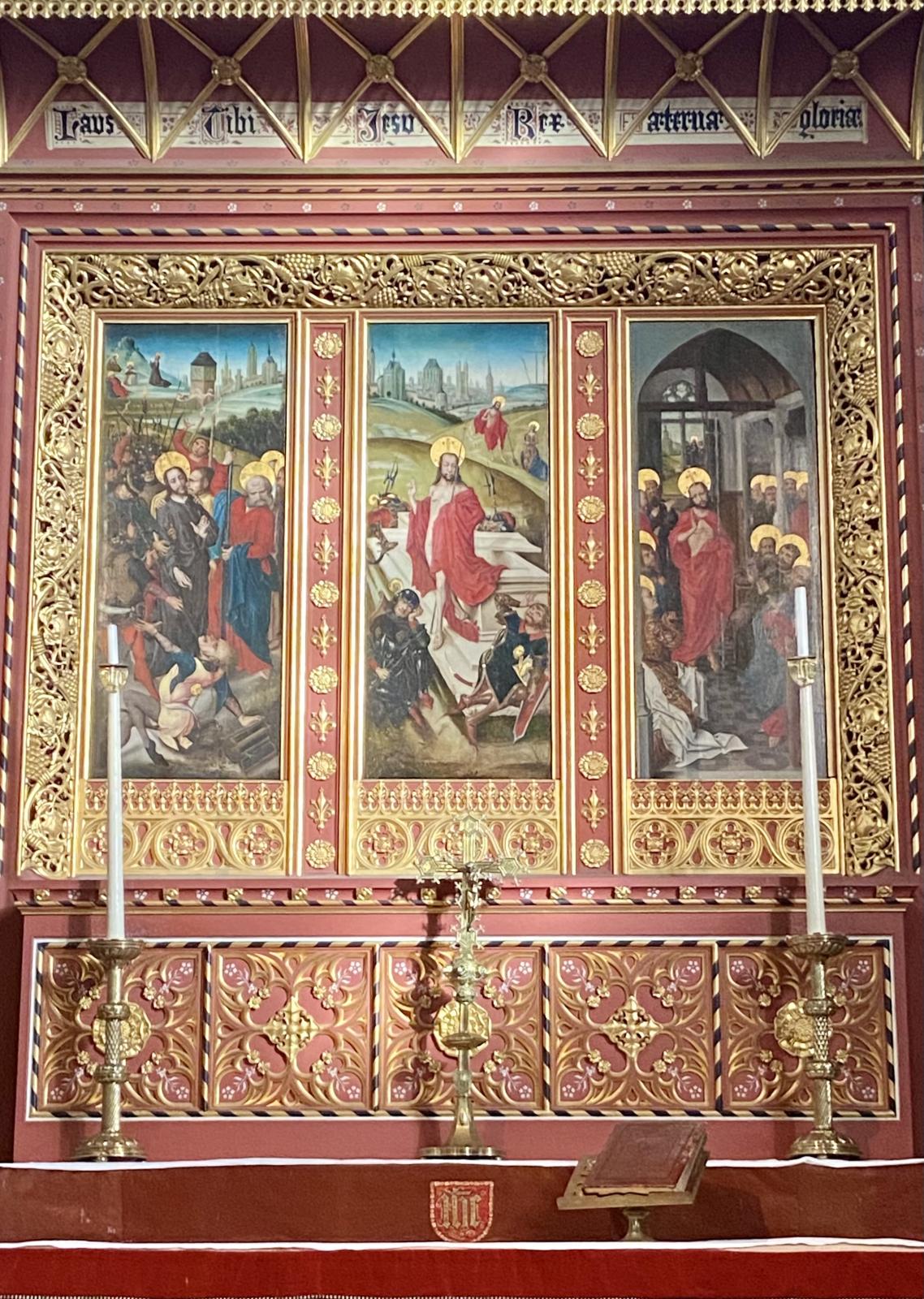Given for Evensong at Queens College, Cambridge on 27th October 2024, Feast of St Simon and St Jude.
On this feast in 1830, St John Henry Newman preached a sermon ‘Vanity of Human Glory’. He said that while ‘little is known’ of these saints, an important lesson can be drawn from their example: ‘to do our duty without aiming at the world's praise’.
Newman’s sermon contrasts the relative obscurity of these two saints who were martyred in Persia with the desire for ‘indiscriminate praise’. Praise is good for us but a needy desire for glory and honour creates a selfish and obsessive heart which can destroy oneself and others. We can think of how youthful ‘celebrity’ often ends in tragedy or the obsessive desire to be loved becomes tyrannical and causes chaos in the lives of others.
The temptation for the highest places at the table is dangerous and can easily lead to an erosion of principles, weakening of the virtues of justice and prudence, loss of integrity and ultimately corruption of the soul. As C. S. Lewis develops in his short story ‘The Inner Ring’; the desire to be included within a small and intimate group of colleagues, who become friends, and have a special type of insider knowledge, can lead to a prison sentence or a peerage but, in his language, you would still be a scoundrel!
To turn to the readings. The verses from the Book of Deuteronomy chapter 32 follow the renewal of the covenant at Moab, God’s choice of Joshua as Moses’ successor, the command to place the Torah beside the ark in the temple, to read it aloud every seven years on the Feast of Tabernacles, and introduce the ‘Song of Moses’. This will serve as a constant reminder to the people of the rocklike steadfastness of God and contrast this with their frequent infidelities. Daily they must choose the way of life rather than way of death.
Like Saints Simon and Jude, our new identity in Christ begins in baptism when we are buried with Christ and raised with Him as ‘the beloved of the Lord’. Christ’s whole life is a mystery of recapitulation (CCC 518) so that we might become like him through his grace and enter communion with him. As living stones, chosen and precious to him, we are to be built into God’s household (1 Pet 2:4). In an age which defines self-identity or group identity according to various characteristics, labels and at times ideologies, the Christian’s identity is found in the embrace of God’s love, saved by Jesus Christ, and graced as a temple of the Holy Spirit. This identity transcends all the other identities which a person may choose or assume. The affirmation of God’s love and God’s choice is the foundation of who we are.
To be personal. As I reflect on my pilgrim pathway to this date, reading mathematics, Fisher House, confusion, seeking identity and belonging, seminary, service as a Catholic priest in parishes and teaching, being appointed an Auxiliary Bishop of Westminster, the finger of God feels very close as the pieces of a jigsaw lead towards the wider picture, or the tangled threads on the back of a rug build the slowly emerging pattern on the front. On ordination as a bishop, I received a card of congratulations from someone who wrote, ‘the first Catholic bishop from Queens’ since Fisher! Rather a daunting challenge!
God’s grace is necessary to overcome temptation and sin. Mysteriously, often like the dampness of early morning dew, this gift brings growth as we are embraced by the forgiveness of the Father and are united more deeply with Christ. Our identity is found in him to whom we belong, both the Rock who is faithful, and the suffering Christ whose wounds we touch in our neighbours, especially the poorest and weakest. The Holy Spirit, the Advocate, the Helper, moulds us into conformity with Christ and a deeper understanding of the death and resurrection of Jesus. The early fifth century monk and theologian, St. Vincent of Lérins, describes this process, ‘The growth of religion in the soul must be analogous to the growth of the body, which, though in process of years it is developed and attains its full size, yet remains still the same… This, then, is undoubtedly a true and legitimate rule of progress, this the established and most beautiful order of growth, that mature age ever develops in the man those parts and forms which the wisdom of the Creator had already framed beforehand in the infant.’ (On the Development of Doctrine in the Church, 23.55). We are held in this mystery to be the presence of Christ in the world and bring his sweet fragrance into places of darkness and the shadow of death 2 Cor 2:15).
Many Christians are saints who live in relative obscurity. Their love and good deeds are known only to a few close to them. Their faithful prayers are often murmured quietly and hidden. They do not make the headlines but live their lives in quiet service of their families and neighbours. Many of our brothers and sisters are viciously persecuted and suffer for their faith, often being martyred in terrible circumstances. We pray for them encouraged with words from near the end of Newman’s letter:
‘Go on, then, contentedly in the path of duty, seeking Christ in His house and in His ordinances, and He will be your glory at His coming. He will own you before His Father… Your names will be written in Heaven, with those of St. Simon and St. Jude, and the other Apostles. You will have the favour of Him whose favour is life.’
Bishop John Sherrington
